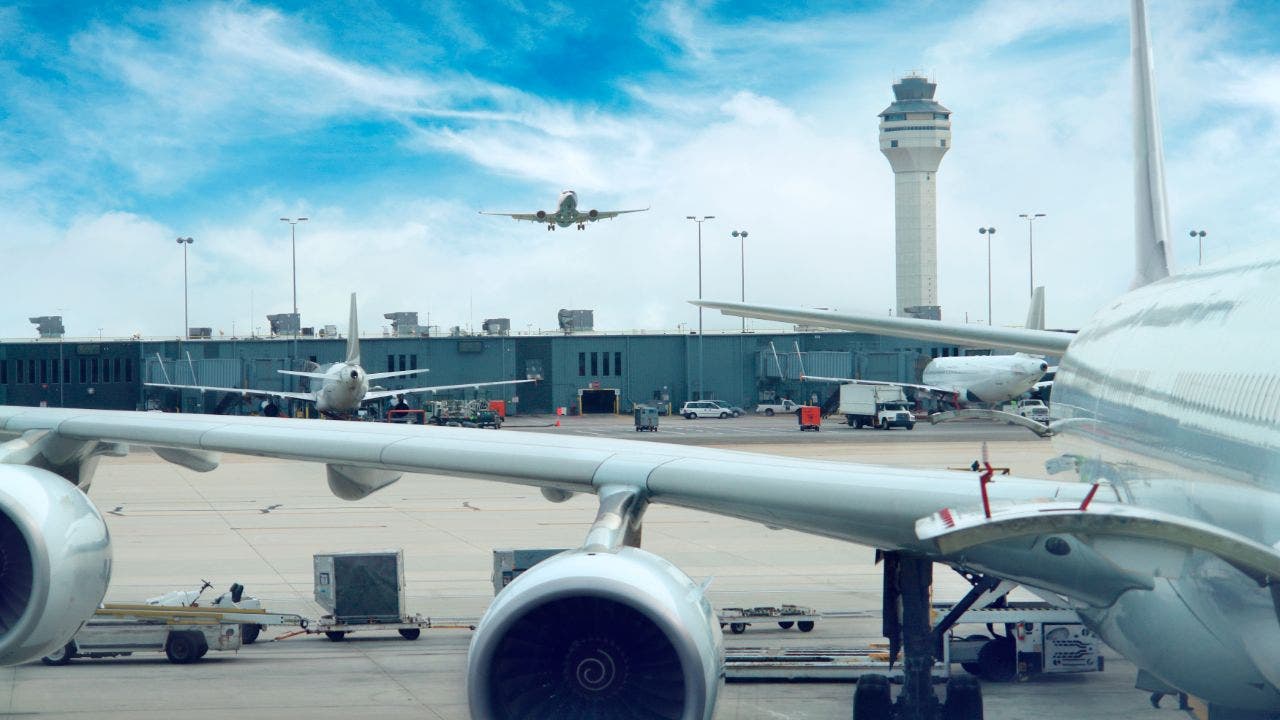A confirmed case of measles at Washington Dulles International Airport has raised concerns for travelers and residents in the surrounding areas, including Maryland. With measles cases on the rise across the U.S., it’s crucial to understand the risks and take preventive measures. This article will delve into the details of the Dulles Airport case, provide an overview of the current measles situation in the U.S., and offer guidance on how Maryland residents can protect themselves and their families.
Measles is a highly contagious disease caused by a virus. It can spread quickly through the air when an infected person coughs or sneezes. Symptoms typically appear 7-14 days after exposure and include fever, cough, runny nose, and a characteristic rash that starts on the face and spreads throughout the body. Complications from measles can be serious, especially for young children and adults, and can include pneumonia, encephalitis (brain swelling), and even death.
Measles Exposure at Dulles Airport
The Virginia Department of Health (VDH) reported that an international traveler who arrived at Dulles International Airport on March 5, 2025, was confirmed to have measles. The potential exposure site includes Terminal A, transportation to the main terminal, and the baggage claim area, between 4 p.m. and 9 p.m. that day. Health officials are working to identify and notify individuals who may have been exposed, including passengers on specific flights.
If you were at Dulles Airport during the specified time and date, it’s essential to check your vaccination records. According to the CDC, individuals who have received two doses of the MMR vaccine are considered protected against measles. If you are unsure of your vaccination status, contact your healthcare provider.
Measles Cases Rising Across the U.S.
The Dulles Airport case is part of a broader trend of increasing measles cases in the United States. Several states have reported outbreaks, with Texas reporting the highest number of cases. The majority of these cases are occurring in unvaccinated communities. This resurgence of measles underscores the importance of vaccination in preventing the spread of this highly contagious disease.
According to the Texas Department of State Health Services (DSHS), Texas has reported the highest number of measles cases since January, marking 198 infected people as of Friday morning, which includes 23 hospitalizations. Most of the cases were detected in unvaccinated. New Mexico also reported its first measles death on Thursday in an unvaccinated adult.
Measles in Maryland: Current Status
While the confirmed case was in Virginia, Maryland residents traveling through Dulles or those with close contacts who did, might be concerned. For up-to-date information on measles cases in Maryland, it’s best to consult the Maryland Department of Health’s official website. As of today, there haven’t been any confirmed cases, but constant monitoring is advised.
Staying informed about local health advisories and recommendations can help you take appropriate precautions and seek medical attention if necessary.
Preventive Measures: What Maryland Residents Can Do
The best way to prevent measles is through vaccination. The MMR vaccine is safe and effective, and it provides long-lasting protection against measles, mumps, and rubella. The CDC recommends that all children receive two doses of the MMR vaccine, starting with the first dose at 12-15 months of age and the second dose at 4-6 years of age. Adults who are not immune to measles should also get vaccinated.
In addition to vaccination, practicing good hygiene can help prevent the spread of measles and other respiratory illnesses. This includes washing your hands frequently with soap and water, covering your mouth and nose when you cough or sneeze, and staying home if you are sick.
Vitamin A and Measles: What You Should Know
HHS Secretary Robert F. Kennedy Jr. shared his “deep concern” about the measles outbreak and its rapid escalation. Kennedy noted that while there is no approved antiviral for measles, the Centers for Disease Control and Prevention (CDC) released a statement last week supporting the administration of vitamin A under physician supervision. Previous research published in the International Journal of Epidemiology has shown that vitamin A, in conjunction with the measles vaccine, can be an effective intervention in preventing measles mortality in children.
Maintaining and consuming various vitamins — like A, B12, C, D and E — as the “best defense against” chronic and infectious illness is important. Consult your doctor before taking any supplements.
Conclusion
The confirmed measles case at Dulles Airport serves as a reminder of the importance of vaccination and public health vigilance. Measles is a highly contagious disease that can have serious complications, but it is preventable with the MMR vaccine. Maryland residents should ensure they are up-to-date on their vaccinations and follow recommended hygiene practices to protect themselves and their communities. Stay informed about the latest health advisories from the Maryland Department of Health, and consult with your healthcare provider if you have any concerns.
By staying informed and taking proactive measures, we can work together to prevent the spread of measles and protect the health of our communities.

Leave a Reply